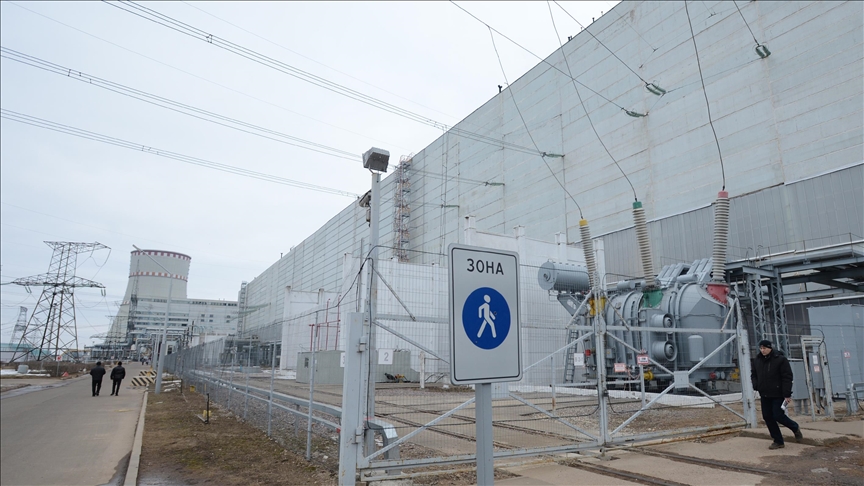Russia accuses Ukraine of 'nuclear terrorism' after failed attack on 2 nuclear power plants
Federal Security Service claims Ukrainian 'saboteurs' blew up 1, mined 30 pillars supplying energy to nuclear power plants to break up reactors
 Kalinin nuclear power plant ( FILE PHOTO - Anadolu Agency )
Kalinin nuclear power plant ( FILE PHOTO - Anadolu Agency )
MOSCOW
The Russian Federal Security Service (FSB) claimed on Thursday that it thwarted a terrorist attack on two nuclear power stations, prepared by Ukraine's intelligence, and accused Kyiv of "nuclear terrorism."
In a statement on its website, the FSB said a sabotage group mined over 30 electric power lines supplying energy to Leningrad and Kalinin nuclear power plants, in order to break the normal operating mode and eventually damage the nuclear reactors.
The Russian Security Service dubbed the attack as "nuclear terrorism," adding that the attack was scheduled for May 9, when Russia celebrates its victory in World War II, which is called in Russia the Great Patriotic War.
The FSB said the saboteurs managed to blow up one pillar, and that following the incident, two Ukrainian citizens were arrested -- Aleksandr Maystruk born in 1978 and nicknamed Mechanic, and Eduard Usatenko, born in 1974 and nicknamed Maks.
A Russian and Ukrainian citizen, Yury Kischak, born in 1953 and nicknamed YuBK, who is currently in Belgium, was also put on the wanted list, it added.
Maystruk and Usatenko told the FSB that they were recruited by a Ukrainian Foreign Intelligence Service officer, Vitaly Gorbatyuk, in 2022, then were trained in special camps in Kyiv and Mykolaiv regions, and later arrived to the Russia-Belarus border via Poland, and illegally crossed it.
"In addition, two accomplices of saboteurs from among the citizens of Russia have been identified and detained, who assisted them in providing means of communication and vehicles with fake state registration plates," the FSB said.
The explosives were smuggled via an international cargo transportation channel along the route through the Polish city of Chelm and the city of Shalchininkai in Lithuania, and then through the territory of Belarus to the Rzhevsky district of Russia's Tver region in a cargo trailer, which was equipped with caches, it added.
A criminal case under articles of "Sabotage" and "Illegal acquisition, transfer, sale, storage, transportation, transfer or carrying of explosives or explosive devices" were opened following the incident. The maximum punishment under the first article is 20 years in prison, while it is eight years in prison under the second.
Anadolu Agency website contains only a portion of the news stories offered to subscribers in the AA News Broadcasting System (HAS), and in summarized form. Please contact us for subscription options.







